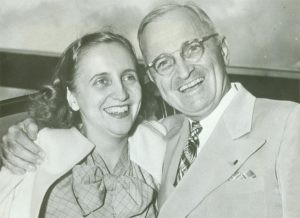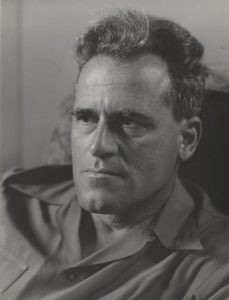“Puff the Magic Dragon” is more than just a children’s song; it’s a cultural touchstone, a melody that evokes nostalgia and sparks debate even decades after its release. First charting on March 16, 1963, performed by Peter, Paul and Mary, this seemingly simple tune quickly climbed to number 2 on the Billboard charts, embedding itself into the hearts of generations. But beyond its catchy melody, the Song Lyrics To Puff The Magic Dragon hold a deeper, often misunderstood story.
 Giovanni Battista Pergolesi (1710-1726)
Giovanni Battista Pergolesi (1710-1726)
Alt text: Portrait of Giovanni Battista Pergolesi, Italian composer of the 18th century.
Before we delve into the enchanting world of Puff, it’s worth noting that March 16th has historically been a significant date in music. On this day in 1736, the world lost Giovanni Pergolesi, a prodigious Italian composer who died tragically young at 26. His short life, though marked by “notorious profligacy” according to some accounts, gifted us with remarkable music, echoing the sentiment of Schubert’s epitaph: “Music here has buried a rich treasure, but still fairer hopes.”
 Margaret Truman and her father, President Harry S. Truman, in 1947
Margaret Truman and her father, President Harry S. Truman, in 1947
Alt text: Margaret Truman singing with her father, President Harry S. Truman, during her 1947 radio debut.
March 16th also marks the professional radio debut of Margaret Truman in 1947, daughter of President Harry S. Truman. While initially met with polite reviews, her vocal talents were eventually critiqued honestly, leading to a now-infamous, scandalously strong reaction from her presidential father towards the music critic.
 Ernst Lecher Bacon (1898-1990)
Ernst Lecher Bacon (1898-1990)
Alt text: Ernst Bacon, American composer, photographed circa 1960s.
And in 1990, on March 16th, American composer Ernst Bacon passed away, leaving behind a legacy of underappreciated mid-twentieth century American music, a category ripe for rediscovery.
But today, our spotlight shines on the magical world created by Puff the Magic Dragon lyrics.
The Genesis of a Dragon: From Poem to Song
The journey of “Puff the Magic Dragon” began not as a song, but as a poem. In 1959, Lenny Lipton, then a 19-year-old student at Cornell University, penned the original verses. Inspired by Ogden Nash’s whimsical poem “The Tale of Custard the Dragon,” Lipton crafted a narrative centered around a dragon and a child’s innocent friendship. Nash’s poem, written in 1936, itself told the tale of a “realio, trulio little pet dragon,” planting a seed for Lipton’s later creation.
 Puff and Jackie
Puff and Jackie
Alt text: Peter, Paul and Mary’s “Puff the Magic Dragon” album artwork featuring Puff and Jackie Paper.
Peter Yarrow of Peter, Paul and Mary later adapted Lipton’s poem into the beloved song we know today. Released in 1963, “Puff the Magic Dragon” resonated deeply, particularly with children, due to its fantastical imagery and gentle melody. Parents often seek ways to introduce children to the world of music, and “Puff” became a natural gateway, alongside artists like the Kingston Trio and Theo Bikel, who were part of the folk music scene embraced by families. Just like personal record collections shaped musical tastes for generations, “Puff the Magic Dragon” became a foundational piece for many childhoods.
Decoding the Lyrics: Innocence and Growing Up
The lyrics of “Puff the Magic Dragon” paint a vivid picture of childhood imagination and the bittersweet passage of time. The song tells the story of Puff, a magical dragon, and his inseparable friend, Jackie Paper, who live in the fantastical land of Honalee “by the sea.” They spend joyful days together, “frolicked in the autumn mist in a land called Honalee,” embodying the carefree spirit of youth.
However, as Jackie Paper grows older, his interests shift, and he gradually drifts away from his imaginary friend. This poignant moment of separation is captured in the lines: “One grey night it happened, Jackie Paper came no more / And Puff that mighty dragon, he ceased his fearless roar.” Puff, heartbroken by the loss of his friend, retreats into his cave, symbolizing the fading of childhood imagination as adulthood approaches. This narrative arc mirrors the themes explored in stories like Toy Story 3, where a child’s growing up necessitates letting go of cherished childhood companions.
The intended message behind the song lyrics to Puff the Magic Dragon is a poignant reflection on the inevitable loss of innocence and the transition to the adult world. It’s a universal experience – the bittersweet realization that the boundless imagination of childhood gives way to the responsibilities and realities of growing up.
The Cloud of Controversy: Drug Allegations and Misinterpretations
Despite its innocent origins and intended message, “Puff the Magic Dragon” became entangled in controversy. In 1964, a Newsweek article discussing “hidden drug references” in popular music singled out “Puff,” sparking rumors that the song was actually about marijuana use.
Suddenly, innocent phrases were reinterpreted through a drug-related lens. “Puff,” the dragon’s name, was linked to “puffing” marijuana. “Jackie Paper” was seen as a reference to rolling papers. “By the sea” became “by the C” for cocaine. “Autumn mists” were twisted into marijuana smoke, and “Honalee” was even connected to Hanalei, Hawaii, known for potent cannabis strains. This wave of misinterpretation shocked the song’s creators.
Lenny Lipton, the poem’s author, vehemently denied these claims: “[Puff is about the] loss of innocence and having to face an adult world. It’s surely not about drugs… I find the fact that people interpret it as a drug song annoying.” He emphasized the innocence of the era in which it was written, stating that drug use was not prevalent among his peers at the time of creation.
Peter Yarrow, co-writer of the song, echoed this sentiment, stating unequivocally: “As the principal writer of the song, I can assure you it’s a song about innocence lost… When Puff was written, I was too innocent to know about drugs.” He lamented the rumor’s impact, even leading to the song being banned in some regions due to the drug allegations.
Mary Travers, of Peter, Paul and Mary, further clarified: “Peter wrote the song, and it is not about marijuana. Believe me, if he wanted to write a song about marijuana, he would have written a song about marijuana.”
 Peter (Yarrow; right), Paul (Stookey; left) & Mary (Travers; center) in 1965
Peter (Yarrow; right), Paul (Stookey; left) & Mary (Travers; center) in 1965
Alt text: Peter, Paul and Mary performing folk music together in 1965, promoting peace and social change.
Despite the creators’ clear intentions, the drug rumors persisted, highlighting how easily art can be reinterpreted and misunderstood, especially when viewed through the lens of societal anxieties.
The Enduring Magic of “Puff”
Regardless of the misinterpretations, “Puff the Magic Dragon” remains a beloved song. Its enduring appeal lies in its simple yet profound exploration of universal themes: childhood, friendship, loss, and the passage of time. The song lyrics to Puff the Magic Dragon, at their heart, tell a story of growing up and the wistful farewell to the magic of childhood.
 Lenny Lipton (born 1940) circa 2010
Lenny Lipton (born 1940) circa 2010
Alt text: Lenny Lipton, the lyricist of “Puff the Magic Dragon,” photographed around 2010.
In challenging times, like those we face today, music offers solace and strength. Songs like “Puff the Magic Dragon,” and the broader folk music movement of Peter, Paul and Mary, Dylan, and Simon & Garfunkel, provide comfort and remind us of shared human experiences. Whether you find meaning in the innocent tale of a dragon and a boy, or reflect on the unintended controversies surrounding it, “Puff the Magic Dragon” continues to spark conversation and resonate with listeners. Its magic, ultimately, lies in its ability to touch upon the universal emotions of growing up and remembering the wonder of childhood.
To delve deeper into the world of Peter, Paul & Mary and the American folk music scene of the 1950s and 60s, explore further resources and rediscover the power of music to uplift and transform.
